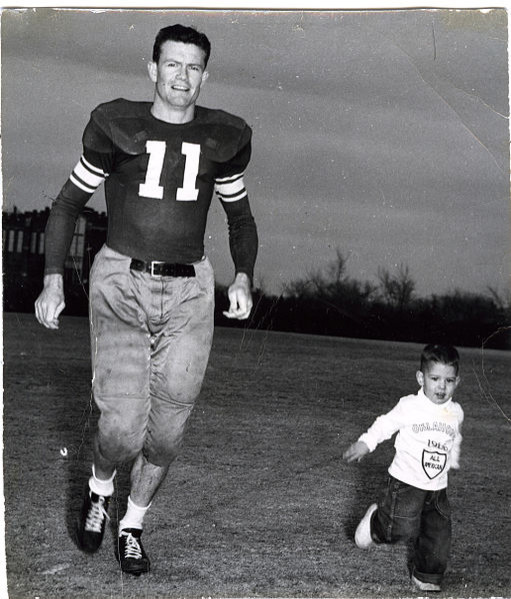Darrell Royal Dies, Legendary Longhorns Coach And 'Wishbone' Mastermind Dead After Losing Battle With Cardiovascular Disease

Darrell Royal, one of college football’s most celebrated coaches who famously lead the University of Texas Longhorns to three national championships, died on Wednesday in Austin, Texas. He was 88.
While Royal had previously undergone treatment for Alzheimer’s disease, the cause of death was ruled to be complications of cardiovascular disease, the University of Texas told reporters.
A former quarterback for the Oklahoma Sooners, Royal took over as head coach at University of Texas in December 1956 and achieved success almost instantaneously.
Staying with the program for a total of 20 seasons, Royal had coached the Longhorns to 11 Southwest Conference championships and 16 bowl appearances.
He was named national coach of the year five times and was elected to the College Football Hall of Fame in 1983.
Statistically a legendary figure in college football, Royal and his squad also pioneered a wishbone offense running game that influenced the way football is played at universities throughout the country.
Introduced in September 1968, the wishbone featured three runners lined up in the shape of a Y (or a wishbone), the fullback directly behind the quarterback and two tailbacks split behind them, offering several options on a given play and emphasizing quickness.
During his tenure as head coach of the Longhorns, Royal coached star running backs Earl Campbell and Roosevelt Leaks, star tackle Scott Appleton and Tommy Nobis at linebacker, compiling a record of 167-47-5 at Texas.
Royal's image came under publicized scrutiny after one of his own players released a tell-all, which detailed brutality and intimidation under the coach's administration.
In 1972, reserve linemen of the mid-1960s, Gary Shaw released “Meat on the Hoof: The Hidden World of Texas Football.”
According to an excerpt obtained and cited by the New York Times, Shaw wrote that Royal had put seldom-used players through drills in which they pummeled one another, hoping that many would quit so he could find more recruiting spots for highly talented high school players.
“I don’t deny at all that we ran a tough program, especially back then,” Royal told Texas Monthly in 1982. “I don’t think we ran it without feelings.
“I didn’t recognize some of those drills he described. We never had them ever -- at any time,” he added.
Royal also faced allegations of racisim for Texas’ belated use of black players. In 1970, Julius Whittier became the first African-American letterman to play for the Longhorns.
Despite a slew of negative allegations that might work to tarnish a legendary coaching career, Coach Royal was famous for the inspirational “Royalisms” he issued as motivational tools. Some of these sayings include:
"God gives talent, size, speed. But a guy can control how hard he tries."
"I want to be remembered as a winning coach, but I also want to be remembered as an honest and ethical coach."
"You've got to think lucky. If you fall into a mud hole, check your back pocket -- you might have caught a fish."
"Punt returns will kill you quicker than a minnow can swim a dipper."
"Don't matter what they throw at us. Only angry people win football games."
© Copyright IBTimes 2024. All rights reserved.






















